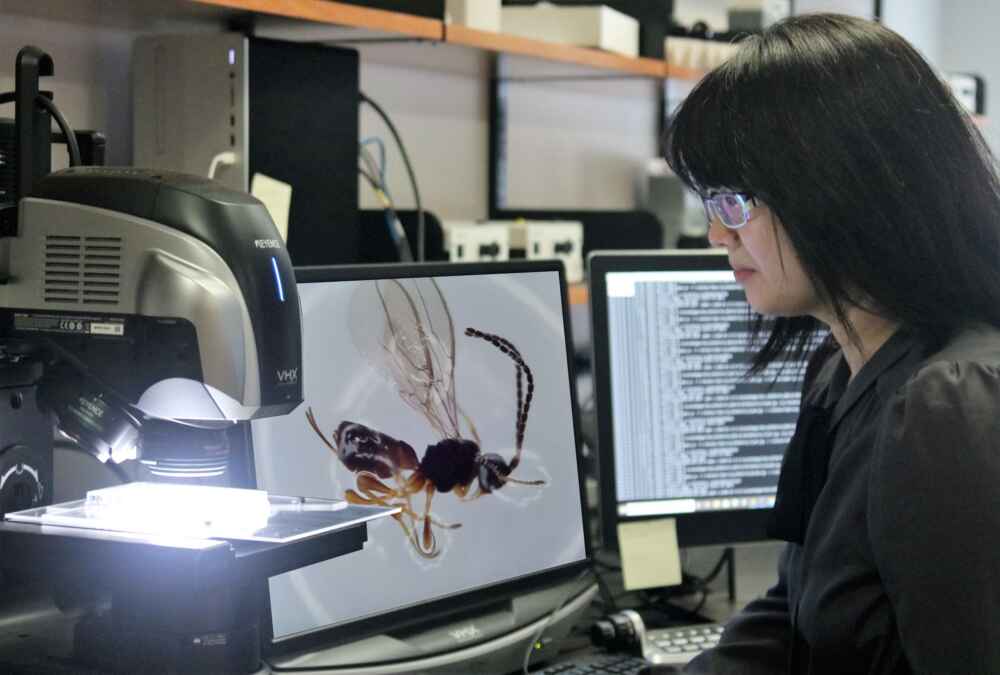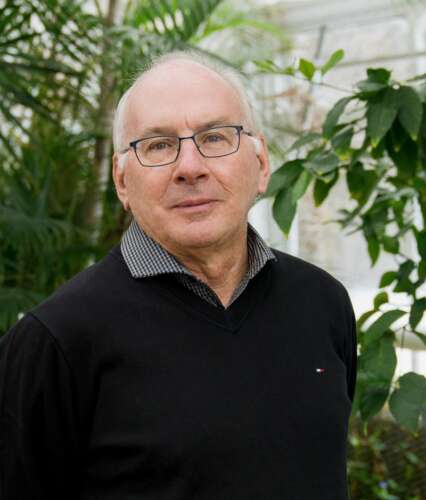
A world-renowned research facility at the University of Guelph has been awarded more than $8.9 million by the Canada Foundation for Innovation (CFI).
The Centre for Biodiversity Genomics (CBG) is a global leader in developing and using DNA-based identification systems to discover, catalogue and monitor the diversity of multicellular life around the world.
The funding will help support the CBG team of 120 researchers, highly qualified personnel and administrative staff — as well as expensive equipment that requires regular maintenance — integral to the centre’s day-to-day operations.
The award is part of a $628-million investment announced today by François-Philippe Champagne, Minister of Innovation, Science and Industry. Provided by CFI through its Major Sciences Initiatives (MSI) program, the funding will support the ongoing operation and maintenance of research facilities of national importance. In total, 19 research centres at 14 institutions across Canada received funding.
DNA barcoding conceived, developed by U of G researchers

“The work we do continues because of generous programs like CFI MSI,” said Dr. Paul Hebert, CBG director and a professor in the Department of Integrative Biology within the College of Biological Science. “Together, we’re able to give curious people, from schoolchildren to scientists, the opportunity to know what species live around them and to understand the impact human activities have on those lives.”
Much of the centre’s work uses DNA barcodes, an innovation conceived and developed by U of G researchers led by Hebert. DNA barcoding uses short, standardized sections of the genome to identify species quickly, accurately and inexpensively.
“The pioneering work of this University of Guelph research centre has revolutionized our capacity to illuminate — with the hope to preserve — the biodiversity of our planet,” said Dr. Malcolm Campbell, vice-president (research). “This significant federal investment will fortify efforts by University of Guelph researchers and their international collaborators to improve human, animal and ecosystem health by protecting biodiversity across the globe.”
Guelph MP Lloyd Longfield said, “Human activity has altered three-quarters of Earth’s surface, creating a biodiversity crisis that is threatening a million species worldwide and uprooting the essential nature we need to absorb and store carbon. The University of Guelph is playing a key role in monitoring biodiversity around the planet, so we can better understand the impacts humans are having on other species.”
DNA-based identification has many applications, such as improving pest and disease control and informing regulatory policy. The centre provides DNA sequencing and informatics support to research partners worldwide.
It also hosts three collections crucial to the international research community: seven million specimens, an image library of these specimens and the world’s largest DNA archive for biodiversity.
“By collecting and organizing DNA barcode records from sites across the planet, the CBG is setting the foundation for a global biosurveillance system that will capture changes in how species are distributed over time and space,” Hebert said. “We are equipping humanity with the capacity to monitor biodiversity at a critical time in Earth’s history. It will empower us to stem the otherwise irrevocable loss of species.”
The Centre for Biodiversity Genomics is showcased in a collection of stories about Canadian research facilities funded through the 2023 Major Science Initiatives.
